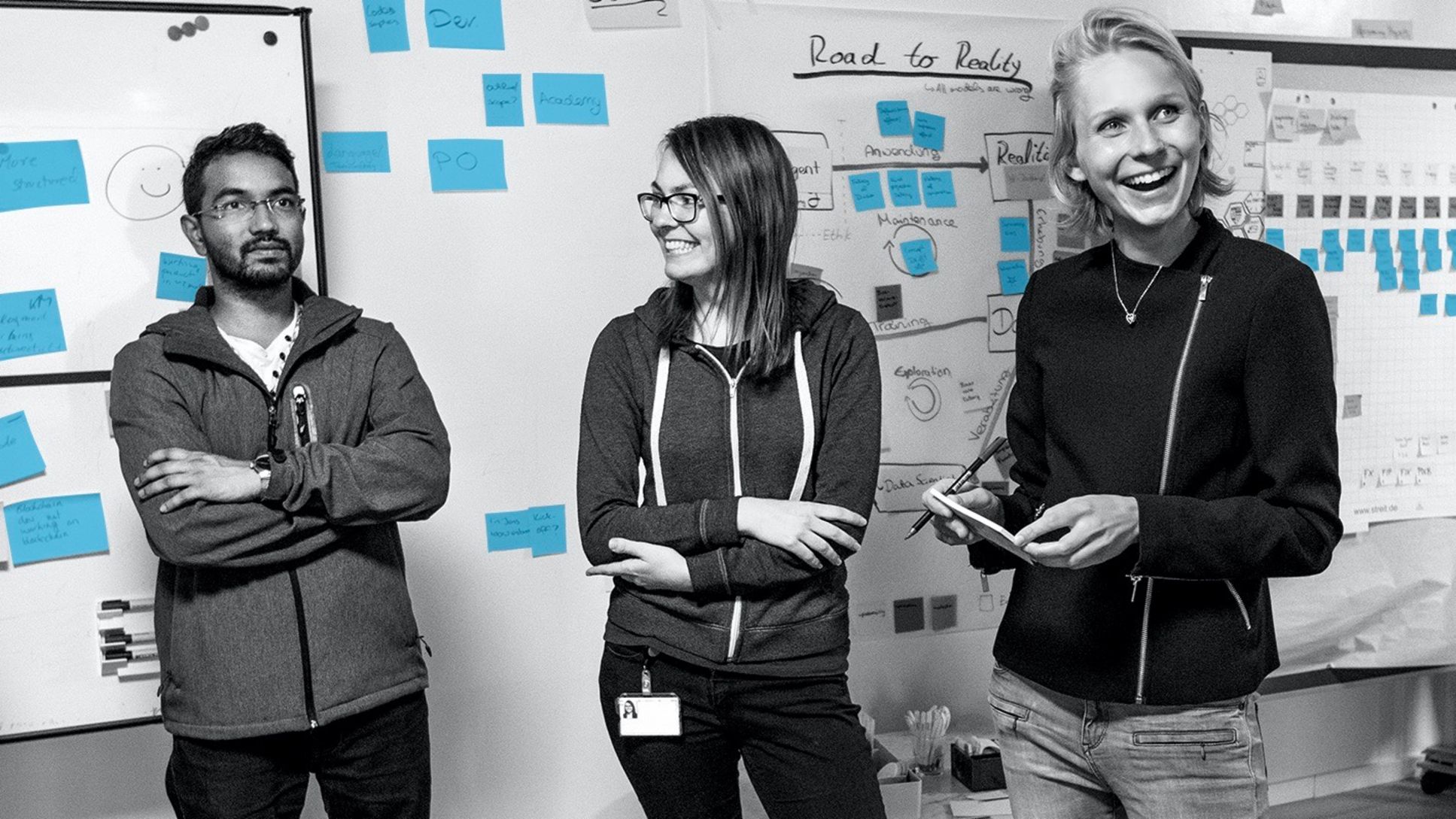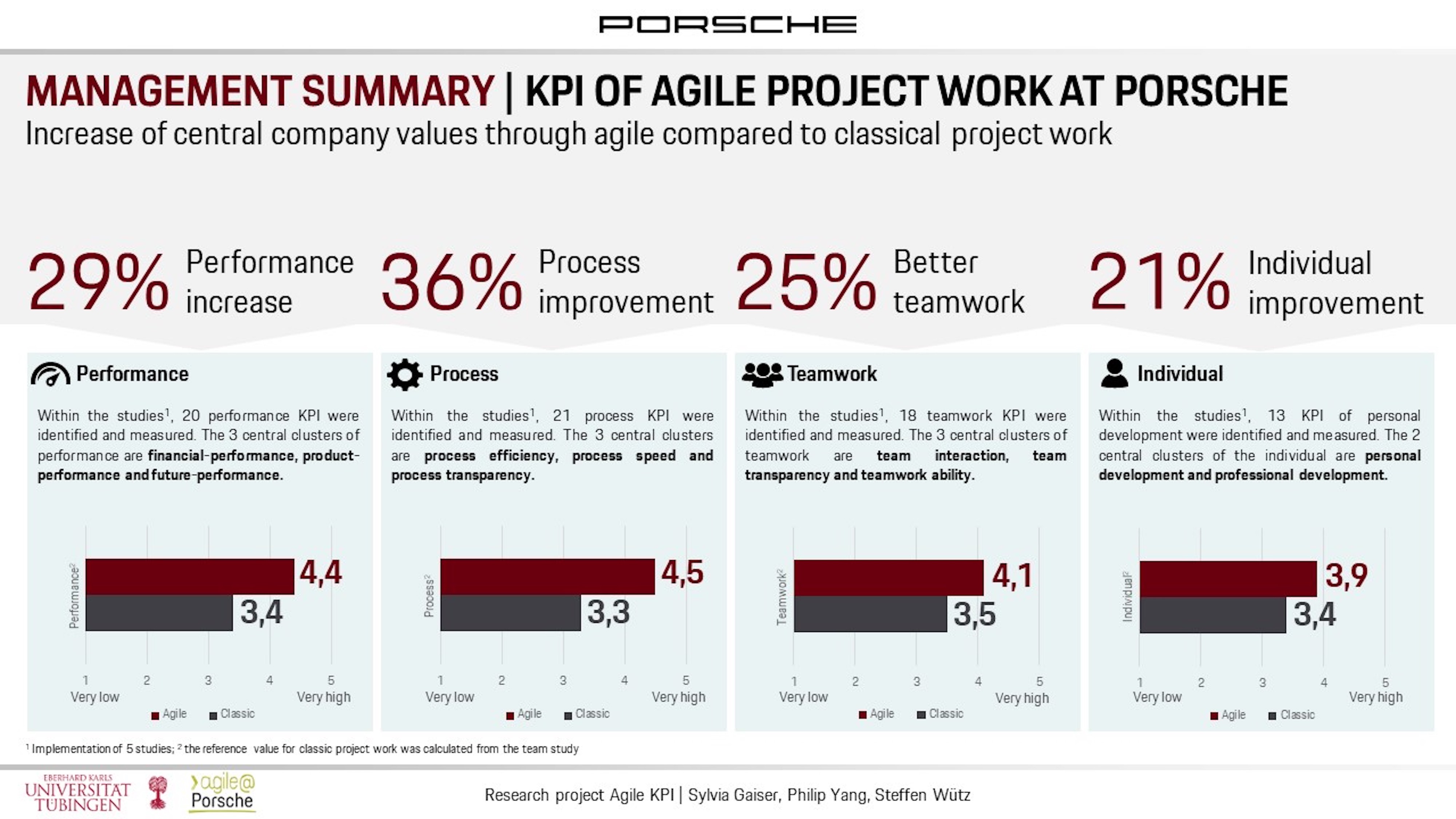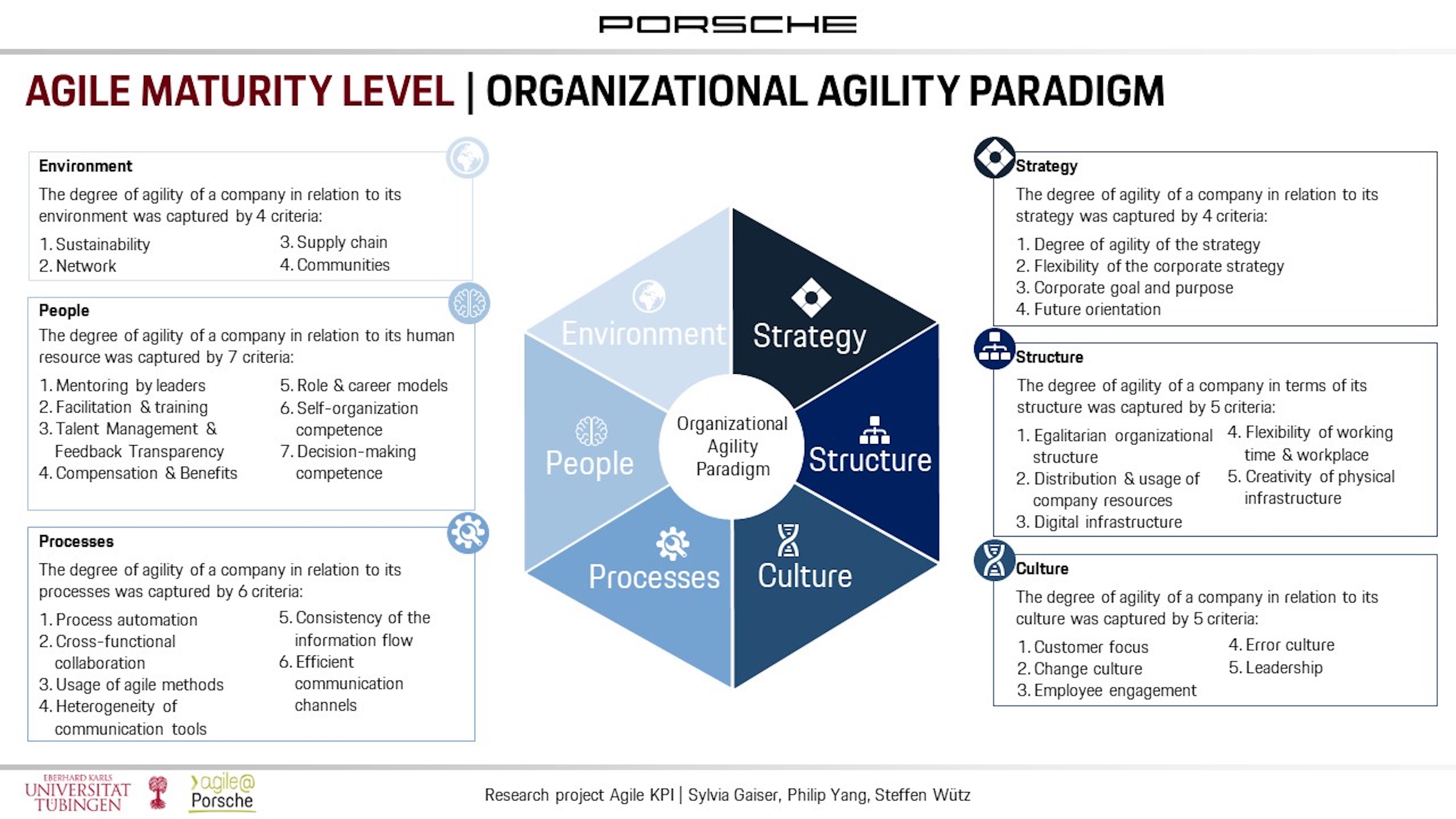As part of the Porsche research work, the agile maturity level in the Porsche Group was determined and compared with other industries. In other words, how agile are structures, processes, leadership or culture? In addition, selected projects at Porsche were analyzed in agile formats and in classical team structures. Conclusion: In a comparison of the four overarching dimensions, the agile teams performed better. Project performance was 29 percent better, process efficiency 36 percent, team effectiveness 25 percent higher and individual performance 21 percent higher. Therefore, one needs to decide which working method provides the greatest advantages – agile or classical work – in each individual case in the beginning of a project.
"Agile KPIs - Agile maturity and transformation status of Dr. Ing. h.c. F. Porsche AG," was the title of the research project led by Sylvia Gaiser. The aim of the project: to determine key performance indicators (so-called KPIs) that describe the added value of agile work compared to classical teamwork. Gaiser has been working in the department of HR strategy and organizational development at Porsche for just over three years. The research project is part of her doctorate on "Organizational Agility" at the University of Tübingen.
"The research fills a real gap and the project team is setting the standard. Everyone is talking about agile working, but up to now, no robust success or risk factors were established, neither from academia nor from practice . With these findings, we will use agility at Porsche in an even more targeted manner," says Andreas Haffner, Member of the Executive Board for Human Resources and Social Affairs at Porsche AG. The scientific partner of the research project was the University of Tübingen with its Chair of Strategy and Organization of Prof. Dr. Philip Yang. On the Porsche side, the Agile@Porsche initiative and the head of the New Work initiative at Porsche, Dr. Steffen Wütz, played a key role.
"With this project, we wanted to meet the need for clear key figures. Instead of making vague predictions about the added value of agile work as well as the level of maturity, we can now perform very targeted analyses," says Sylvia Gaiser. Anna Roizman from the Agile@Porsche initiative underlines the necessity: " Again and again, colleagues asked us about concrete opportunities and risks of agile compared to classical teamwork. Personal impressions are important, of course, but they are not objective. In this respect, clear and neutral measured values were overdue." Dr. Steffen Wütz confirms: "The great interest in the results of our studies shows how much suitable models have been lacking up to now. They are very well received across all industries and confirm our decision to initiate the research work as part of the doctorate."
A total of five studies were conducted to determine Porsche's agile maturity level compared to other industries, as well as to define the most important KPIs. The result was a KPI set with 31 agile maturity criteria (Fig. 2) and a total of 72 agile KPIs for measuring project work (Fig. 1). The agile projects showed a 46.7 percent higher degree of innovation and a 53.3 percent improved reaction speed. Team collaboration improved by 46.7 percent and self-determination increased by one-third.
The KPI set is already being used extensively at Porsche. For example, agile teams can select from this set which KPIs they find helpful for their work. Then they can then measure these KPIs and further develop their teamwork based on these adjusting screws.




